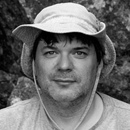Advisory Board and Editors Microbiology
Andrew J Weightman
Professor of Microbiology and Division Leader (Organisms & Environment) at Cardiff University, School of Biosciences

Katrine L Whiteson
Katrine Whiteson uses metagenomics, metabolomics, microbiology and ecological statistics to answer questions about how microbes and viruses affect human health. She studied Biochemistry at UC Berkeley (BA, 2000) and University of Chicago (PhD, 2007). During her PhD, Dr. Whiteson focused on the active site chemistry and DNA binding specificity of a site-specific recombinase from the class of proteins that enable the spread of antibiotic resistance genes. In 2008, she began a new job at the University of Geneva Hospitals with Dr. Jacques Schrenzel and Dr. Patrice Francois. This was an exciting era, just at the start of the Human Microbiome Project, for asking basic unanswered questions about the microbes and viruses inhabiting various niches of the human body. Dr. Whiteson focused on the oral microbial communities of healthy Europeans, and malnourished kids in Niger who develop a devastating facial gangrene known as noma. In 2011 she moved to Forest Rohwer’s lab at San Diego State, where she undertook breath and sputum metabolite analysis to better understand the activity of CF patient microbial communities from Dr. Doug Conrad’s Adult CF clinic at UCSD. Combining information about the genetic potential of a microbial community through DNA sequencing with the activity of the community by metabolite profiling is a powerful approach that Dr. Whiteson hopes to employ in future projects as she begins her own lab at University of California Irvine in Fall 2014.

Siouxsie Wiles
Dr Siouxsie Wiles MNZM studied medical microbiology at the University of Edinburgh, followed by a PhD in microbiology at the Centre for Ecology and Hydrology in Oxford and Edinburgh Napier University. She is currently an associate professor at the University of Auckland. There she heads up the Bioluminescent Superbugs Lab where she and her team make nasty bacteria glow in the dark to find new antibiotics and to better understand how bacteria become more infectious. Siouxsie has won numerous awards for both her science and her science communication. In 2017 she published her first book, ‘Antibiotic resistance: the end of modern medicine?’ and in 2019 was appointed a member of the New Zealand Order of Merit for services to microbiology and science communication. When the pandemic arrived, Siouxsie joined forces with Spinoff cartoonist Toby Morris to make the science of COVID-19 clear and understandable. Their award-winning graphics have been translated into multiple languages and adapted by various governments and organisations around the world. Siouxsie was the Supreme Winner of the Stuff Westpac 2020 Women of Influence Award, named by the BBC as one of their 100 influential women of 2020, and in 2021 was named Kiwibank New Zealander of the Year.

Yuri I. Wolf
Lead Scientist, Koonin Group at the Computational Biology Branch, National Center for Biotechnology Information, National Library of Medicine, National Institutes of Health (Bethesda, Maryland).

Nasim Ahmad Yasin
Dr. Nasim Ahmad Yasin is a Associate Professor at the University of the Punjab carrying out research in the field of Horticulture and Environmental Science.
Educational background:
2021-2022: Post-Doctorate: Vegetable Research Institute, Guangdong Academy of Agricultural Sciences, China.
2015: PhD: Institute of Agricultural Sciences: University of the Punjab Lahore.
1997: MSc. (Hon): University College of Agriculture, Rawalakot: The University of Azad Jammu and Kashmir –Muzaffarabad Azad Kashmir.
1995: BSc. (Hon): Barani Agriculture College, Rawalpindi. University of Agriculture, Faisalabad.

Humaira Yasmin
Dr Humaira Yasmin is tenured Associate professor (TTS) within the Department of Biosciences, COMSATS University, Islamabad, Pakistan. Her research interests include plant-microbe interactions, plant stress physiology, biofertilizers technology, soil microbiology, crop pathology, plant protection, plant biochemistry and molecular biology, medicinal plants, environmental microbiology, and agricultural nanotechnology. Dr Yasmin's research focuses on understanding the detailed biochemical mechanisms adapted by crops when exposed to biotic (fungal/ bacterial) pathogens, abiotic stresses (drought, salinity, heavy metals and heat). She is also investigating various eco-friendly and economic solutions to reduce the adverse impacts of environmental stresses on economically important crops. The techniques studied include isolation, characterization and mode of action of plant growth-promoting rhizobacteria (PGPR). Green synthesis and characterization of nanoparticles from medicinal plants and their application in agriculture to alleviate different stresses. Application of growth regulators (hormones (GA, ABA, SA, BS etc.), chelators (Oxalic acid, mellic acid etc.) and other chemical compounds to increase plant protection. Moreover, synergistic effects of the above mentioned solutions are also under consideration.

Chris M Yeager
I am a broadly-trained microbiologist with a research background in molecular biology, microbial ecology, genomics and biogeochemistry. Over the past 12 years I have served as a Staff Scientist within the Department of Energy National Laboratory system, first in the Environmental Biotechnology Section at Savannah River National Laboratory (2005-2011) and then in the Biosciences and Chemistry Divisions at Los Alamos National Laboratory (2011-current). As a staff scientist, I developed and managed a variety of research programs, focusing on microbial communities involved in processes relevant to climate change, fate and transport of radionuclides in the environment and bioenergy production. I received a BS degree from the University of Wyoming in Biochemistry, after which I worked as a laboratory technologist at the University of Utah and the VA medical center in Salt Lake City, UT with a team investigating the molecular underpinnings of diabetes. I received my doctorate in Cellular and Molecular Biology at Oregon State University in 2001 under Drs. Daniel Arp and Peter Bottomley investigating biodegradation of toxic compounds, such as trichloroethylene and toluene, by soil microorganisms. I completed postdoctoral training (2001-2004) at Los Alamos National Laboratory under Dr. Cheryl Kuske examining how the microorganisms that build and maintain biocrusts in soils of arid environments might respond to climate change.

Heng Yin
Prof. Heng Yin is a Professor of Biochemical Engineering at Biotechnology Department, Dalian Institute of Chemical Physics (DICP), Chinese Academy of Sciences (CAS). He is also group leader at Natural Products & Glycoengineering Research Group, DICP, CAS. Director, Liaoning Provincial Key Lab of Carbohydrates. Prof Yin's research primarily focuses on glycoengineering and enzyme engineering, glycobiology and plant immunity.

Qianwen Zhang
Dr. Qianwen Zhang is an Assistant Professor at Mississippi State University.
Her research is focusing on Organic Agriculture, Biostimulant Application, Controlled Environment Agriculture, Hydroponics, Analytical Chemistry, Food Science, Microbiology, and Sensory Evaluation.


Harald zur Hausen
Professor emeritus of the University of Freiburg and the University of Heidelberg & the past Scientific Director of the German Cancer Research Center in Heidelberg. Awards include the Robert-Koch-Price; the Charles S. Mott Prize; the Paul-Ehrlich-Ludwig Darmstätter-Price; & the 2008 Nobel-Prize for Medicine. Past Editor in Chief of the International Journal of Cancer and former member of the Board of Directors of the International Union against Cancer (UICC).

